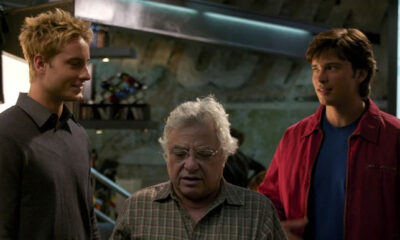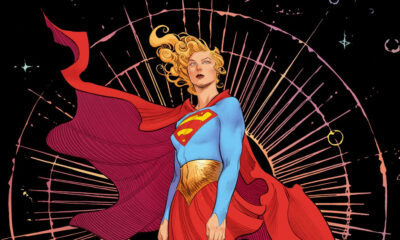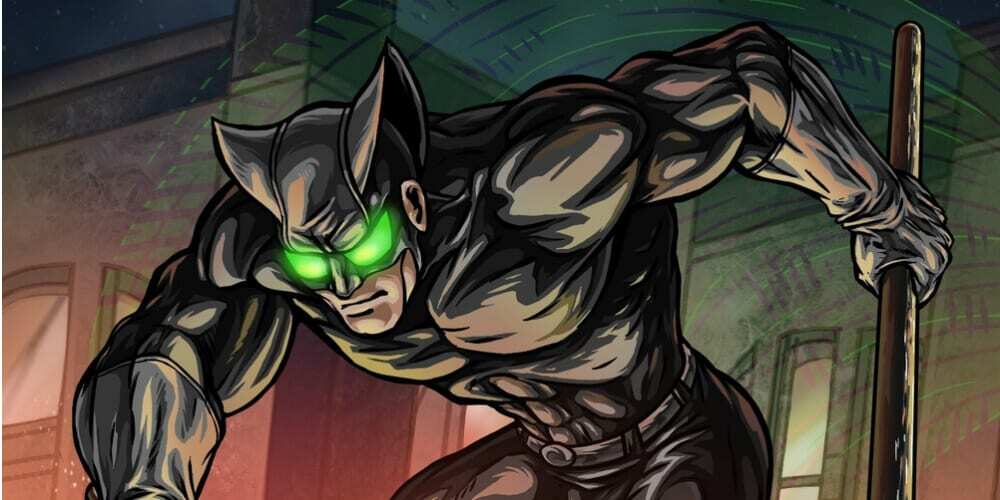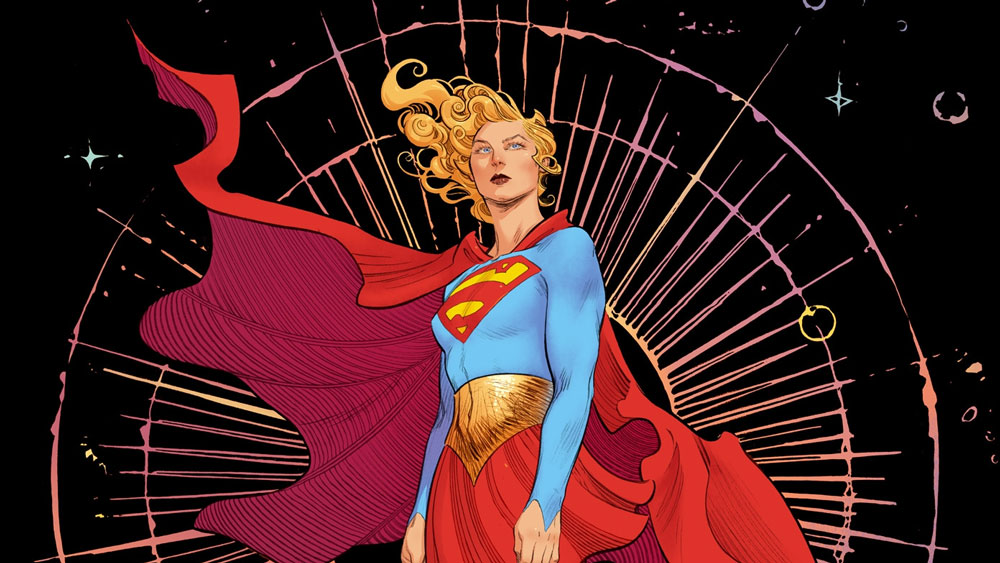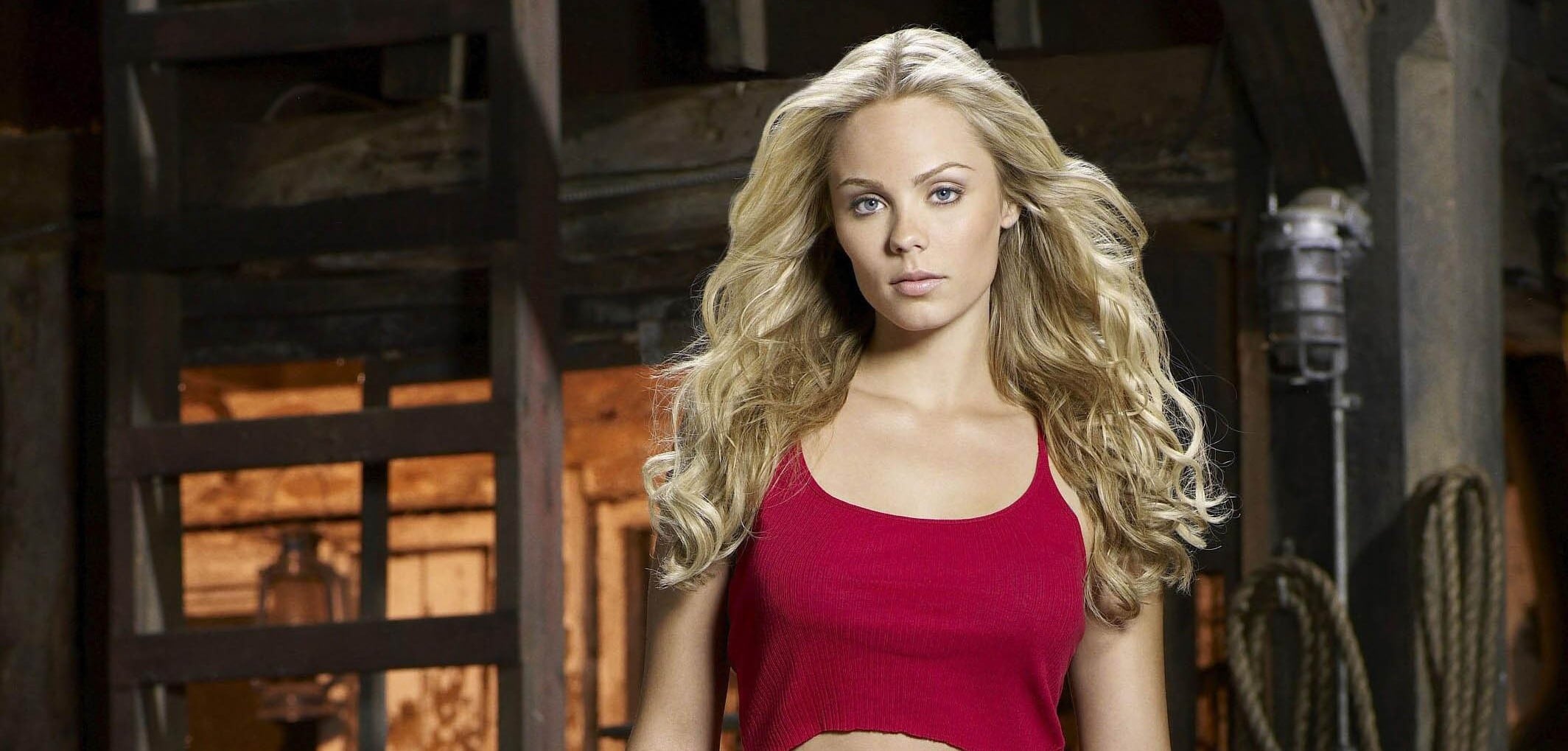Verdict: An intense and involving episode punches above its weight with compelling character work and strong pacing, although it fails to deliver a believable antagonist.
Review:
The world of Supergirl has changed vastly across its two seasons. Cat Grant came and left, as the show zoomed in on the DEO as its home base for storytelling. Mon-El and Maggie came in as regular love interests. Even the characters we know seem a bit different – Kara has become more confident but also more prone to hubris, for instance, while Alex has discovered her sexuality and started up a new relationship. Yet there are always constants on this show. Kara will always be optimistic. J’onn will offer a piece of sage wisdom and/or a stern rebuke. And Alex Danvers will always be a character whose stories are worth watching.
Alex is, I don’t think it’s controversial to say, a well-drawn character embodied by one of the cast’s strongest performers, so it stands to reason that stories revolving around her would be strong. Yet it’s always rewarding to see Supergirl click into gear when it tells an Alex story. It’s the best version of itself, dipping into its most interesting themes and offering genuinely new situations that show familiar characters in new lights with an emotional sensitivity and nuance that’s not always seen elsewhere. In that tradition, Alex is a powerhouse of an episode that draws together a lot of what’s worked about this diffuse season into a satisfyingly cohesive whole. It may struggle to impose the villain-of-the-week formula onto this unusually emotionally involved premise, but as a character story, which this is very much intended to be, this is Supergirl at the top of its game.
One of the reasons why Alex stories work so well is that she’s both technically a supporting character, which means Supergirl can deviate more freely from the formula with her, and a pivotal one because she’s emotionally connected in an intense way to a sweeping majority of the main cast. It’s those emotional connections that Alex picks up on and runs with, creating some impressive results. From the moment the title card hits, there’s a palpable sense of urgency and desperation running through the episode that’s written across almost everyone’s face at the DEO. Alex’s predicament isn’t the kind of thing that can be compartmentalised into a very personal, individual conflict for any given character – the emotional reaction to it is something powerfully shared. It’s interesting that, functionally, this is comfortably the lowest stakes Supergirl has ever gone for, with only one life to be lost in the worst case scenario, but it never feels like that for a second. Thanks to snappy pacing tied to a strong, consistent focus on the way this emotionally affects Alex and the people who love her, the threat feels higher here than episodes where thousands of lives were on the line.
While Alex is evidently someone who’s touched quite a few lives, Alex is primarily interested in the two most important people in her life; Kara and Maggie, who are faced into a classic superhero ideological conflict over their approaches. On paper, Kara’s character arc of learning to overcome her blindspots and naïveté is familiar ground, but it works here partly because of the unique intensity of the emotion that defines Kara’s struggle, but partly because the episode allows her to be, if not unequivocally wrong, then at the very least pretty misinformed for quite some time. It’s a more convincing portrait of good intentions creating destructive results than most because the consequences of her impulsiveness are acutely felt, most clearly when Alex’s deadline is cut to 4 hours as a direct result of her choice. Late on, Alex puts forwards its thesis that love can drive people to crazy things, and it’s initially with Kara that this common statement becomes convincing and directly applicable to this situation – the stress of Alex’s ticking clock amplifies the flaws of hubris and thoughtlessness that we see harmlessly play out in the first act until they cause damage that cannot be avoided. Kara’s actions never seem untrue to her character, because Alex is simply applying her emotional decision-making to a really intense situation, but we do see her in a uniquely questionable light for quite some time, giving her arc the uniqueness it lacks in its premise. It’s a familiar thrill, but an earned one, to see those flaws cast off as Kara rises above the situation and re-asserts her idealistic principles of compassion and empathy in the face of disaster, and her own moral victory is all the sweeter for how seriously Alex takes the idea that she could sacrifice her own beliefs to save her sister.
Truth be told, it’s Maggie’s story that really makes Alex soar as an episode more so than Kara’s. Maggie has been a fixture of most episodes since the top of the season, but quite often as a peripheral figure to offer some assistance to Kara or to have a nice scene or two with Alex. Even in the stories that have directly explored her relationship with Alex, she’s been a supporting character in a side story, as she’s almost always been seen just through Alex’s perspective with morsels of her back-story parcelled out as their relationship has developed. Alex is the first episode that I can remember to make Maggie a genuine lead character, and the results are very rewarding. It gives Supergirl a chance to dig beneath the functional façade of the tough, law-abiding cop and to probe just how much pressure that integrity can stand in an emotional situation. Seeing Maggie spar with Kara over their obvious differences of approach is interesting enough, as we so rarely see these characters interact – we know Maggie well enough that her criticism of Kara genuinely stings with legitimate points that are difficult to disagree with, positioning her as the show’s most credible anti-Supergirl voice at first.
Yet her arc really takes off once Maggie’s moral steadfastness is eroded by something more emotional and impulsive. It’s a chance for Floriana Lima to shine, and she proves to be more than up to the task – it’s an utterly credible portrayal of frantic panic and terror that makes Maggie’s later scenes genuinely affecting to watch. As with Kara, it’s the contrasts that are most powerful here. We’ve gotten used to seeing Maggie as the embodiment of the ground-level fight against crime who sticks to the letter of the law, so her decision to break the villain’s father out of jail is a jolting surprise that does a lot to sell the emotional immediacy of the situation (simply threatening Alex’s death, while offering some intensity, isn’t particularly credible on its own, so the episode needed to hinge on powerful reactions like this to justify the story). It’s also nice to see Supergirl use the experience to deepen Maggie and Alex’s relationship with their first ‘I love you’ to each other. Maggie and Alex have made a convincing couple throughout this season, but they haven’t always been granted the same screen-time for development as other couples like Kara and Mon-El, so it was important that the final act of this episode emotionally hinged on their emotional bond being just as important as Alex’s sisterly relationship with Kara. It sets their relationship in stone as something intrinsic to this show and the stories it’s trying to tell, which is what a plotline that’s been handled with impressive emotional maturity deserves. Wherever it goes next, here’s hoping that this couple stays steady for now.
The weak link of the Alex plotline, to a certain extent, is the villain, Rick Malverne. The premise of his character is a genuinely interesting one – what if an everyday guy decided to take on an all-powerful hero with planning and an intimate knowledge of what buttons to push? And, initially, he’s a compelling threat, able to reduce Kara and Maggie to total powerlessness despite a total lack of physical prowess, and embodying the consequences of Kara’s difficulty in concealing her powers as a child in a way that retroactively enriches her backstory. The problem is that Alex has to keep his threat going all the way through, and it starts to opt for some pretty ridiculous twists to prolong his supremacy over the heroes. He goes from credibly well-prepared psychological villain to a seemingly omniscient god with infinite powers of foresight and about 270 separate contingencies – a knock-off of the grandmaster-type villain who we saw a lot of in blockbusters a few years back after Heath Ledger’s Joker popularised the archetype in The Dark Knight. As his capability increases, his threat diminishes, because his appeal as a credible everyman villain is slowly chipped away by the choice to make him fit the classic supervillain mould. A couple of good twists do help matters, however. The involvement of his father is initially just a catalyst for his plan to manipulate Kara, but Alex’s empathetic exploration of the power of family bonds extends even to the bad guys, and it’s the father who proves to be the weak point in his plan as he gives up Alex’s location to emotionally save his son – a predictable twist, perhaps, but one that adds a valuable perspective to the themes the episode explores with Kara and Maggie. And, while it’s a smaller thing, it’s amusing that Alex feints in the direction of giving Rick’s attachment to Alex emotional weight on par with Maggie’s, but then completely junks that idea in favour of Alex punching the creep in the face. Supergirl is too smart a show to legitimize stalkers, but it was satisfying to see the show steer away from that mistake with confidence nonetheless.
Alex is another mostly standalone episode, and that should be more frustrating than it is. The show has struggled to really carve out an engaging through-line in the back half of season two as it’s meandered from one-off story to one-off story, after all. Yet Alex is a strong advertisement for the benefits of a good standalone episode that tells a satisfying close-ended story with character development that makes us care more about the inevitably tragic events that are to come. If Supergirl is going to continue to play out its plot in slow motion, than to spend time with three of its best characters and fleshing out the complex relationships that exist between them isn’t a bad way to spend that time. After all, while big serialised arcs are the bread and butter of CW shows, it’s intimate character stories like Alex that made Supergirl in the first place.
Odds & Ends
- I lied, somewhat – the Rhea/Lena story is arc material, albeit transparently just table-setting for the more eventful final three episodes. There’s some good drama to be found here, such as the awkwardness of Lena’s situation as someone who’s been lured into another toxic relationship with a maternal figure that was provoked by her last toxic relationship with a maternal figure. By trying to steer away from her Luthor name, Lena’s finding another path into villainy. Please don’t turn evil!
- We didn’t get much J’onn here, but it did feel like Supergirl did a much better job of integrating him into a DEO investigation than it normally does. After all, in season one, he was quite explicitly the father figure for both Danvers sisters.
- Mon-El’s sole contribution this week is to reveal his support for pineapple pizza. “It shouldn’t work…”, he says. That’s because it doesn’t, Mon-El. It doesn’t work.
- Come to think of it, do the characters on this show only consume takeout food? I feel like this show promotes unhealthy eating habits.
- Alex’s MacGyvering in the water tank is hard to critically analyse, so safe to say that those scenes were really awesome, but also terrifying. Drowning scenes in TV are the worst.
- Next episode: City of Lost Children! Three episodes left! The endgame begins! Kara vs Rhea! Kid Randall from This is Us as an alien! More than one scene set in CatCo!
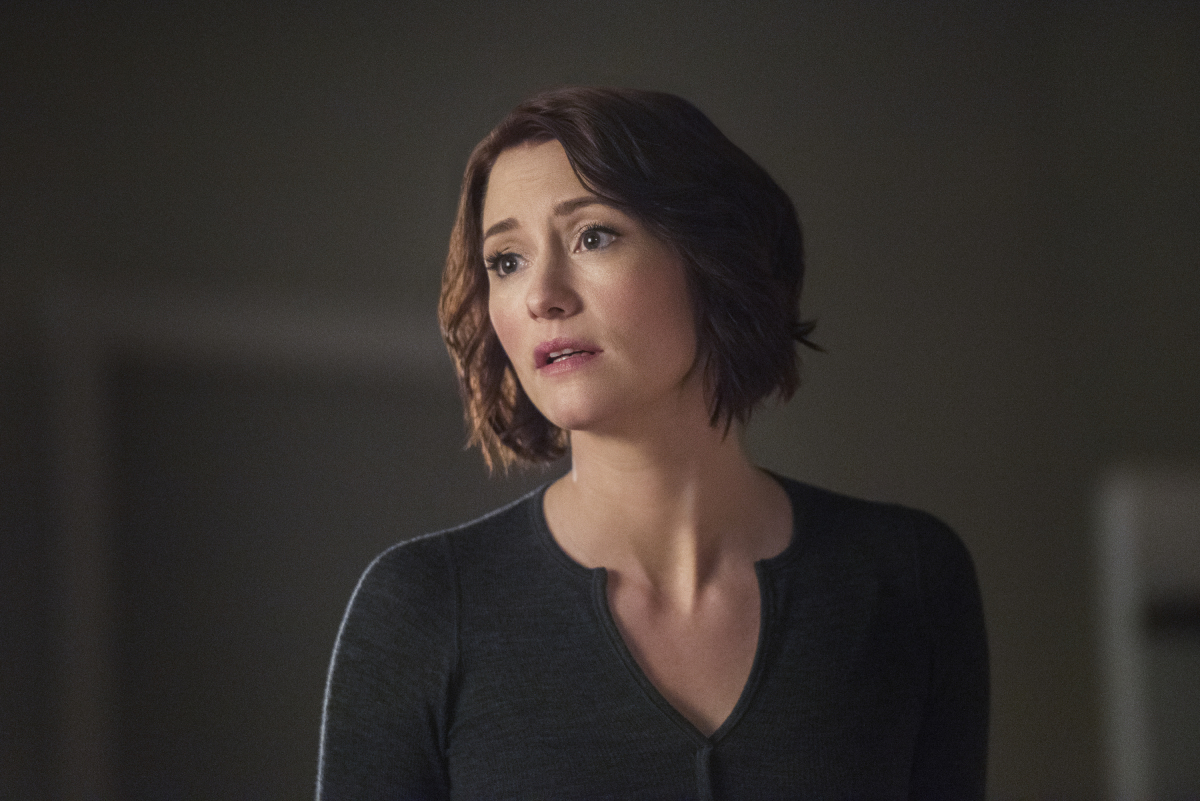

 Opinion5 months ago
Opinion5 months ago
 Smallville6 months ago
Smallville6 months ago
 Smallville7 months ago
Smallville7 months ago
 Lois & Clark7 months ago
Lois & Clark7 months ago
 Smallville6 months ago
Smallville6 months ago
 Smallville6 months ago
Smallville6 months ago
 Smallville5 months ago
Smallville5 months ago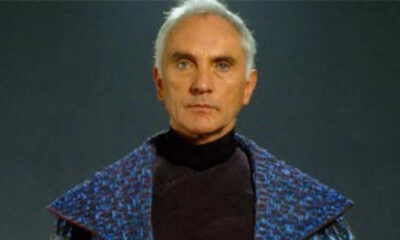
 Smallville4 months ago
Smallville4 months ago

